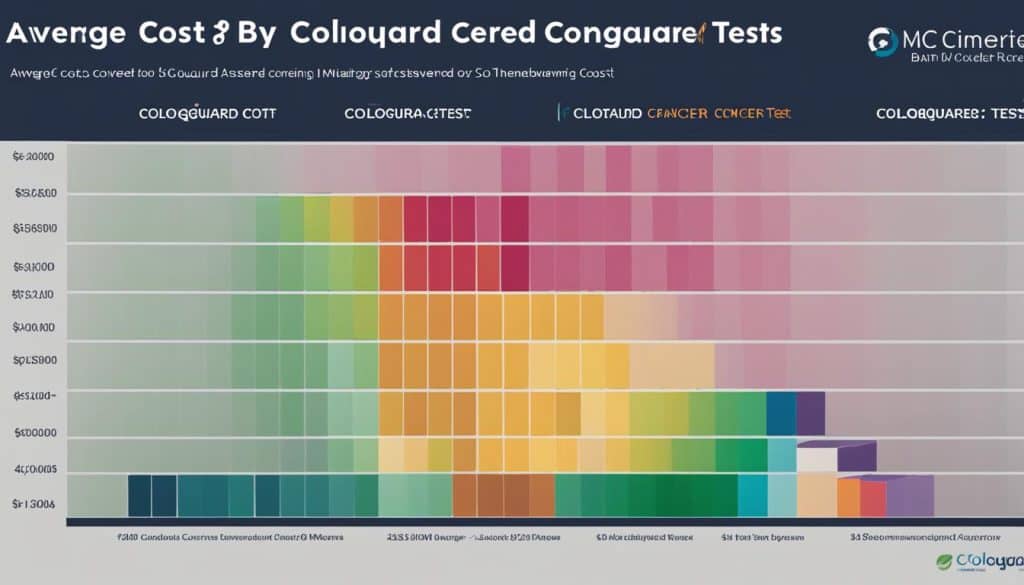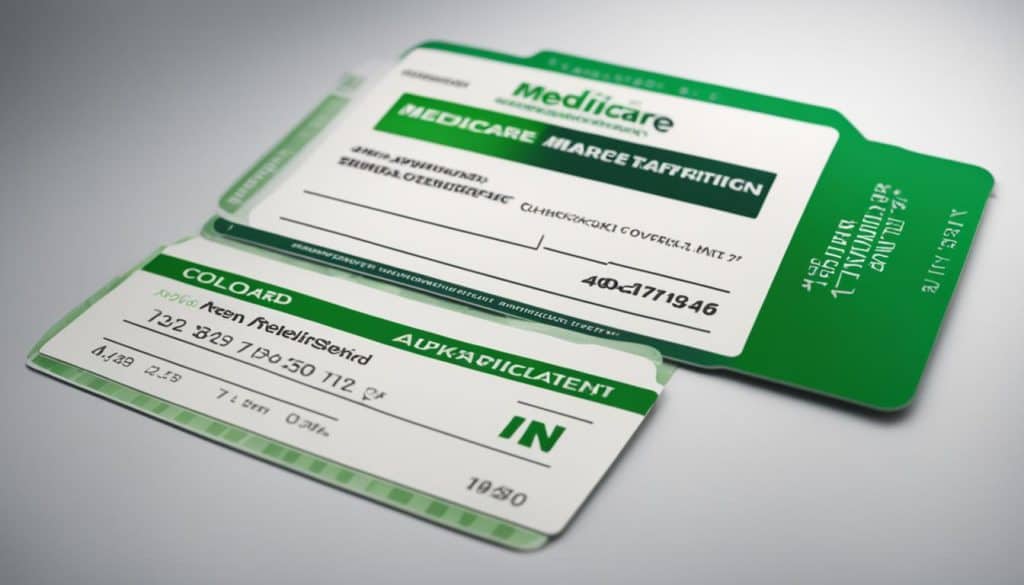If you’re a Medicare beneficiary considering colon cancer screening, you may have heard about Cologuard, a non-invasive, at-home test that detects early signs of colon cancer. However, you may be wondering if Medicare covers this screening option and what the eligibility criteria are.
This comprehensive article aims to answer your questions and provide you with the information you need to make an informed decision about your healthcare needs.
Key Takeaways
- Medicare coverage for Cologuard is available for eligible beneficiaries.
- Understanding Medicare’s coverage criteria and requirements is essential to determine your eligibility for coverage.
- There may be limitations or restrictions to Medicare coverage for Cologuard.
- Integrity Now Insurance Brokers is a Medicare insurance agency that can assist you with navigating your Medicare coverage options.
Understanding Cologuard
Before we delve into Medicare coverage for Cologuard, let’s first understand what Cologuard is. Cologuard is a non-invasive, at-home colon cancer screening test that detects DNA mutations and blood in the stool, which can be early signs of colon cancer. The test requires no preparation, such as fasting or cleansing, and can be done in the privacy of your own home.
Unlike other colon cancer screening options, such as colonoscopies, Cologuard does not require sedation or the insertion of a scope into the colon. This makes it a more comfortable and convenient option for many Medicare beneficiaries, especially those who may be at higher risk for complications due to underlying health conditions.
Although Cologuard is a newer screening option, it has already been approved by the FDA and recommended by the U.S. Preventive Services Task Force (USPSTF) as an alternative screening option for colon cancer.

Because Cologuard is a relatively new option, some Medicare beneficiaries may have questions about its efficacy and safety. According to studies, Cologuard has shown high accuracy in detecting colon cancer and precancerous polyps, with a sensitivity rate of 92% and a specificity rate of 87%. Additionally, Cologuard has a low rate of adverse events and complications.
If you are a Medicare beneficiary interested in Cologuard, it’s important to talk to your healthcare provider about whether it’s the right screening option for you. They can help you understand your risk factors, discuss the benefits and drawbacks of different screening options, and provide guidance on how to obtain coverage under Medicare.
Medicare Coverage for Preventive Services
Medicare provides coverage for a range of preventive services, including cancer screenings. The goal of these services is to detect and prevent health problems early on, improving overall health outcomes and potentially lowering healthcare costs.
When it comes to colon cancer screenings, Medicare covers several options, including colonoscopies, fecal occult blood tests, and flexible sigmoidoscopies. However, in recent years, at-home colon cancer screening tests like Cologuard have emerged as a popular and effective alternative.
Medicare Coverage for Cologuard
Since 2014, Medicare has provided coverage for Cologuard. This screening option is covered for beneficiaries who meet the following criteria:
| Criteria | Description |
|---|---|
| Age | Between 50-85 |
| Frequency | Once every three years, or more frequently if considered “high risk” |
| Indication | No symptoms of colon cancer and no personal history of colorectal polyps, Crohn’s disease, or ulcerative colitis |
As with all preventive services, Medicare covers 100% of the cost of Cologuard as long as the healthcare provider accepts Medicare assignment. This means that beneficiaries will pay zero out-of-pocket costs for the screening test itself.
It’s important to keep in mind that while Medicare covers Cologuard, the test is not for everyone. Medicare beneficiaries should talk to their doctor about whether Cologuard is the right option for them based on their specific medical history and risk factors for colon cancer.
Next, we’ll take a closer look at the criteria for Medicare coverage of Cologuard.
Medicare Coverage Criteria for Cologuard
Medicare has specific coverage criteria for different medical services and procedures, including Cologuard. For Medicare to cover this colon cancer screening test, the following criteria must be met:
- The patient must be between the ages of 50 and 85.
- The patient must have an average risk of developing colon cancer, meaning they have no symptoms or personal history of colon cancer, polyps, inflammatory bowel disease, or hereditary colorectal cancer syndromes.
- The patient must not have undergone another form of colon cancer screening within the past ten years.
- The patient must have a prescription or referral from a healthcare professional.
It’s important to note that Medicare only covers Cologuard once every three years. If a patient meets the coverage criteria, they will not be responsible for any out-of-pocket costs for the screening test.

It’s also worth noting that some Medicare Advantage Plans may offer Cologuard coverage with lower or no out-of-pocket costs. Be sure to check with your plan to see if this option is available to you.
Medicare Advantage Plans and Cologuard Coverage
If you are enrolled in a Medicare Advantage Plan, also known as Part C, you may have coverage options for Cologuard and other preventive services. Medicare Advantage Plans are offered by private insurance companies approved by Medicare and provide an alternative to Original Medicare. These Plans typically include Medicare Part A and B, along with additional benefits such as prescription drug coverage, vision and dental services, and gym memberships.
Medicare Advantage Plans may offer coverage for Cologuard screenings, but it is important to understand the specific coverage options available to you. Some Plans may have different coverage rules and requirements, such as obtaining prior authorization or using in-network providers for the screening.
To determine if your Medicare Advantage Plan covers Cologuard, you can review the plan’s Summary of Benefits or speak with your plan’s customer service representative. You can also contact Cologuard’s customer service to confirm if they are in-network with your Medicare Advantage Plan.
Pros and Cons of Medicare Advantage Plans for Cologuard Coverage
Medicare Advantage Plans offer some potential advantages for beneficiaries seeking Cologuard coverage, including:
- Additional benefits beyond Original Medicare
- Potentially lower out-of-pocket costs for preventive services
- Access to in-network providers for Cologuard screenings
However, there may be some potential drawbacks to consider, such as:
- Restrictions on out-of-network providers for Cologuard screenings
- Limited coverage options for beneficiaries in certain geographic locations
- Potential changes to Plan benefits and coverage from year to year
Ultimately, the decision to enroll in a Medicare Advantage Plan or opt for Original Medicare with additional coverage, such as a Medigap policy, will depend on your individual healthcare needs and preferences.

Remember, medical necessity is just one factor in Medicare coverage for Cologuard. Be sure to review the specific coverage criteria and requirements outlined by Medicare to understand your eligibility for reimbursement.
Obtaining Coverage for Cologuard
If you are a Medicare beneficiary who wants to obtain coverage for Cologuard, there are certain steps you must take to ensure your request is processed appropriately. Here are some essential guidelines to follow:
- Speak with your healthcare provider: Before scheduling a Cologuard test, speak with your healthcare provider and discuss the screening options that may be right for you. Your healthcare provider can help determine if Cologuard is medically necessary for you and provide the necessary documentation for coverage.
- Obtain a prescription or referral: Once Cologuard is deemed medically necessary for you, your healthcare provider will need to provide a prescription or referral for the test. Medicare requires this documentation to process a coverage request.
- Verify Medicare coverage: Before scheduling the test, verify with Medicare that Cologuard is covered under your plan. You can contact Medicare directly or go to the Medicare website to confirm coverage.
- Schedule the test: Once you have obtained a prescription or referral and verified Medicare coverage, you can schedule the Cologuard test with an in-network provider.
- Submit documentation: After you have completed the Cologuard test, submit the necessary documentation to Medicare for reimbursement. This documentation includes proof of medical necessity, the prescription or referral, and any additional paperwork required by Medicare.
By following these guidelines, you can increase your chances of obtaining coverage for Cologuard under Medicare and ensure that you are not left with out-of-pocket expenses.

It’s important to stay informed about the limitations and criteria for Medicare coverage of Cologuard to make confident decisions about your healthcare. By understanding the coverage limitations and discussing your options with your healthcare provider, you can make informed choices about your colon cancer screening needs.
Other Medicare Coverage Options for Colon Cancer Screening
If Cologuard is not the right screening option for you, Medicare offers various alternative options for colon cancer screening. The following are other screening options that Medicare covers:
| Screening Test | Frequency of Coverage | Age Eligibility |
|---|---|---|
| Flexible Sigmoidoscopy | Every 48 months | 50 years or older |
| Colonoscopy | Every 120 months or 48 months for high risk | 50 years or older |
| CT Colonography (Virtual Colonoscopy) | Every 48 months | 50 years or older |
| Stool DNA Testing (FIT-DNA) | Every 3 years | 50-85 years old, average risk for colon cancer |
| Stool Occult Blood Test (FOBT) | Every 12 months | 50 years or older |
It’s important to consult with your healthcare provider to determine which screening option is best suited to your individual needs. Medicare typically covers the full cost of these screening tests, but it’s important to confirm coverage and any associated costs before scheduling the procedure.
It’s essential to prioritize your health and regularly schedule colon cancer screenings. By utilizing Medicare’s coverage options, you can ensure that you receive the preventive services you need without incurring excessive costs.

Conclusion
As a Medicare beneficiary, it’s important to understand the coverage options available for colon cancer screening and whether Cologuard is covered by Medicare. By familiarizing yourself with Medicare’s coverage criteria, you can determine if you are eligible for Cologuard coverage and how much you may need to pay out of pocket.
If you are unsure about your coverage options or have questions about the eligibility requirements, it’s wise to consult with a licensed Medicare insurance agency like Integrity Now Insurance Brokers. Our team of experienced agents can help guide you through the process of obtaining coverage for Cologuard or any other preventive services you may need.
Take Control of Your Health
Regular cancer screenings are essential for maintaining good health and preventing serious health problems down the road. If you are eligible for Medicare coverage, take advantage of the preventive services available to you, including Cologuard and other colon cancer screening options.
Remember, early detection is key when it comes to cancer, and Medicare provides coverage for many essential preventive services to keep you healthy and well-informed. Speak with your healthcare provider today to learn more about your cancer screening options and take control of your health.
FAQ
Is Cologuard covered by Medicare?
Yes, Cologuard is covered by Medicare under specific conditions. However, it is important to meet certain criteria for coverage eligibility.
What is Cologuard?
Cologuard is a non-invasive, at-home colon cancer screening test that detects DNA mutations and blood in the stool, which can be early signs of colon cancer.
Does Medicare cover preventive services?
Yes, Medicare provides coverage for various preventive services, including certain cancer screenings.
What are the coverage criteria for Cologuard under Medicare?
Medicare has specific criteria and requirements that must be met for coverage and reimbursement of Cologuard. It is important to familiarize yourself with these criteria to determine your eligibility.
How much does Cologuard cost with Medicare?
The pricing and cost of Cologuard can vary, and it is important to understand how Medicare handles billing and any associated costs that beneficiaries may need to consider.
Does Medicare Advantage Plans cover Cologuard?
Some Medicare Advantage Plans may offer coverage for Cologuard and other preventive services. It is important to check with your specific Medicare Advantage Plan for coverage details.
How is medical necessity determined for Cologuard coverage?
Medicare coverage is often tied to medical necessity. It is important to understand how medical necessity is determined for Cologuard and its impact on Medicare coverage.
How can I obtain coverage for Cologuard under Medicare?
Navigating the process of obtaining coverage for Cologuard under Medicare may involve steps such as obtaining a prescription or referral and submitting required documentation. It is best to consult with your healthcare provider for guidance.
How does Medicare reimburse providers for Cologuard?
Medicare reimburses providers for Cologuard based on specific reimbursement rates. It is important to understand the reimbursement process and any potential out-of-pocket costs you may incur.
Are there any limitations on Medicare coverage for Cologuard?
While Medicare generally covers essential preventive services, there may be certain limitations or restrictions regarding Cologuard coverage. It is important to be aware of these limitations when considering Cologuard as a screening option.
What are the other Medicare coverage options for colon cancer screening?
Medicare offers various coverage options for colon cancer screening, including alternatives to Cologuard. It is important to explore these options and understand their coverage under Medicare.










